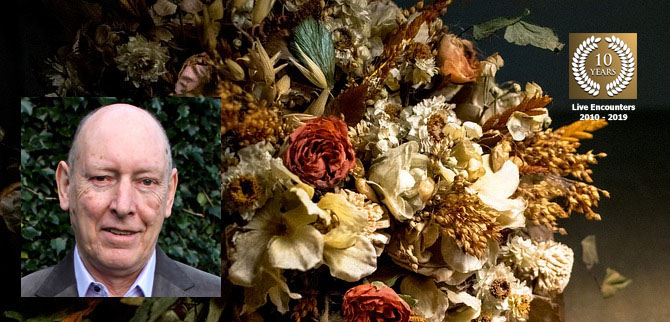Poems by Michael Durack
Michael Durack lives in Co. Tipperary, Ireland. His work has appeared in journals such as The Blue Nib, Skylight 47, The Stony Thursday Book, The Cafe Review and Poetry Ireland Review. Publications include a memoir in prose and poems, Saved to Memory: Lost to View (2016) and a poetry collection, Where It Began, published by Revival Press in 2017. With his brother Austin he collaborates on a programme of poetry and guitar music and they have produced two albums, The Secret Chord (2013) and Going Gone (2015.)
No Way To Say Goodbye
(i.m. Catherine Bailey-Holland)
It seems so long ago:
our coterie of twenty-something singles,
1973, chalk-and-blackboard novices
in a Christian Brothers school –
Marie and Donal, Mary and Sean,
Jimmy, Catherine, Danny and I.
You lived above a butcher’s shop on Market Cross,
your hi-fi spinning the ‘seventies bedsit staple
of Tea for the Tillerman and Songs From A Room.
I took down the words of Nancy from your speakers
in that flat where a careless housemate sparked a blaze
and left a trail of smouldering underwear.
When you mimicked the Kerry tones of Lyreacrumpane
the staff room lit up; you radiated joy. It seems so long ago.
So when I heard the news that brooked no hope,
of life-support no longer bolstering life,
I thought about Cat Stevens’s Wild World –
hard to get by just upon a smile – and Leonard Cohen
reminding us that that’s no way to say goodbye.
Romeo and Juliet at The Royal Albert Hall
Plucked from a National Guitar, the poignant opening strains
of Dire Straits’ Romeo and Juliet heard for the very first time
in a lime-green Datsun Cherry, traffic lights on red at the AIB,
late for work but determined to hear the song through.
Half a lifetime later, in the West Choir of The Royal Albert Hall,
keyboards laying down the sombre mood, the spotlights trained
on a saxophonist blowing grief notes towards the dome,
and hushed listeners in stall and circle, loggia, gallery,
waiting for Mark Knopfler’s plaintive arpeggio to summon
a lovestruck Romeo and his startled Juliet from Verona
via Manhattan’s Upper West Side to Kensington Gore.
No work any more, all the time in the world to catch the story,
that begins with a saucy Romeo finding a convenient street light,
stepping out of the shade and saying something like:
You and me, babe, how about it?
Leaving Aside
For children of The Cold War the world
was black-and-white, or white-and-red.
We loved America, its White House gleaming;
Red Square all grim walls and military hardware
(leaving aside those astonishing onion domes.)
The West was won by cowboys in white hats
(leaving aside the many trails of tears);
Siberia was gulags and frozen tundra.
America stood for peace and democracy
(leaving aside Hiroshima, Bay of Pigs),
and the new Camelot (leaving aside the infidelities)
had an Irish-Catholic king and a chic queen.
Khrushchev was short and bald and lacking manners
(remember that shoe-banging at the UN?)
and had he been picked off from a grassy knoll
in Baku Onassis would not have courted Nina K.
We feared Soviet spies but approved of US surveillance.
Gary Powers had such a handsome face,
and the U2 (leaving aside Bono, The Edge & Co)
was cool, CIA (soft vowels) good, KGB bad.
Elvis and Nashville, Connie Francis and Pat Boone,
Hollywood, Marlon Brando, Norma Jean.
What could the USSR offer us (leaving aside
Stravinsky, Shostakovich, The Bolshoi)?
Yes, Sputnik rocked, Laika was a pretty dog
and Gagarin had charisma, but when push came to shove,
the US won the Moon race pulling up.
At The Olympic Games the USA kicked Russian ass
(if you leave aside the wrestling, weightlifting and gymnastics.)
Where was the Red Arnold Palmer, Cassius Clay
(leaving aside Brumel and Yashin)? Lev Yashin!
Even in the black-and white, or white-and-red
world of The Cold War we envied them their Black Spider,
the goalkeeper who in Yevtushenko’s poem
comes rushing off his line, his Ballon d’Or.
© Michael Durack


